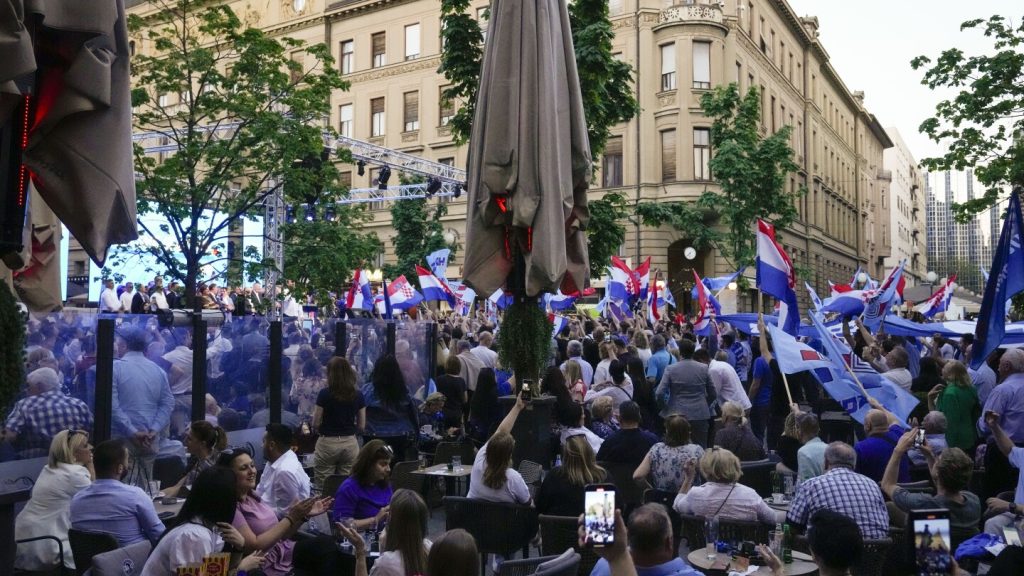Croatia is preparing for its upcoming parliamentary election, scheduled for Wednesday, which has been marked by intense exchanges between the country’s top officials, leading to a political crisis in the Balkan nation. The election will see the ruling conservative Croatian Democratic Union (HDZ), led by Prime Minister Andrej Plenkovic, facing off against an alliance of centrist and left-wing parties informally led by populist President Zoran Milanovic and his Social Democratic Party (SDP). The outcome of the election is crucial not only for Croatia but also for Europe as it deals with the fallout from Russia’s invasion of Ukraine. A victory for HDZ would mean continued political stability and support for Ukraine, while a win for SDP could shift the country towards a more pro-Russian stance, potentially impacting European politics.
The HDZ has been in power in Croatia since the country gained independence in 1991. As the newest member of the European Union, Croatia has been on a pro-Western course, supporting Ukraine in its conflict with Russia. However, Milanovic’s candidacy for prime minister and his campaign on behalf of the SDP faced a setback when the constitutional court ruled that he could not run for the position or campaign for any party while serving as president. Milanovic continued to campaign, accusing Plenkovic and the HDZ of corruption and mismanagement of state funds. The election has become a battleground between the two rivals, with Milanovic’s pro-Russian stance contrasting with Plenkovic’s more reserved approach.
Despite pre-election polls predicting a comfortable victory for HDZ, both parties are unlikely to secure enough seats to rule alone. Smaller parties on the right and left may play a crucial role in determining the outcome of the election. Milanovic’s popularity among the electorate, despite his controversial statements, has positioned him as a significant player in Croatian politics. The election is seen as a defining moment in the ongoing power struggle between Plenkovic and Milanovic, with the future direction of the country at stake. The results of the election could not only impact Croatia’s political landscape but also have broader implications for Europe and its relations with Russia.
The campaign leading up to the election has been characterized by sharp rhetoric and personal attacks between the two main contenders. Milanovic’s accusations of corruption against Plenkovic and the HDZ have raised concerns about the state of governance in Croatia. Plenkovic, in turn, has criticized Milanovic for his pro-Russian stance and accused him of being irresponsible in his approach to foreign policy. The election has become a referendum on the leadership styles and policy positions of the two candidates, with voters being called upon to make a choice between continuity and change in Croatian politics.
As Croatia prepares to head to the polls, the political atmosphere in the country is tense, with both the ruling party and the opposition vying for support. The outcome of the election is expected to have far-reaching consequences, not just for Croatia but for the wider European Union. With the country at a crossroads in terms of its geopolitical orientation and economic stability, voters will play a crucial role in determining the future direction of the nation. The election on Wednesday is set to be a pivotal moment in Croatia’s political history, with the potential to reshape the country’s political landscape and its relations with its European neighbors.


